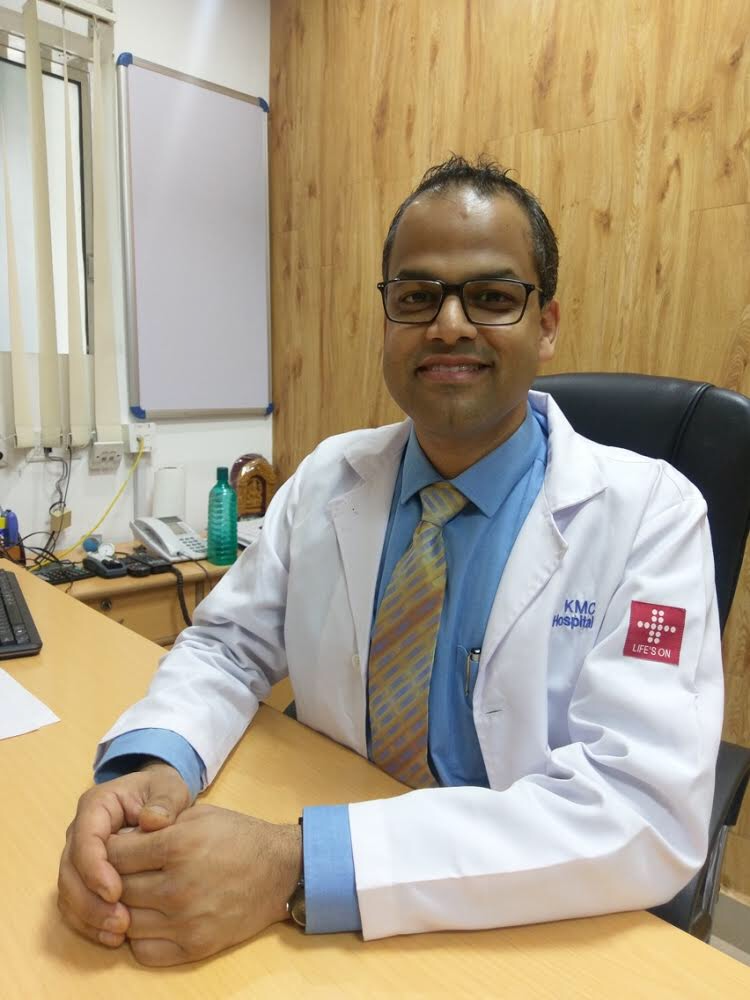“For any doctor, it’s not just clinical progress or how they deal with patients that's important, but also how you adjust and adapt to changes in your field. Completing a research degree really taught me to be more inquisitive about the changes around me."
This story was created using notes from an interview between Clinical Pharmacology student, Aman Kular, and alumnus Dr Yogeesh Kamat.
Alumnus and lower limb Orthopedic Surgeon, Dr Yogeesh Kamat, moved to the UK after completing his first degree in India. He was able to carry out a post-graduate doctoral research degree (MD-Res) at St George's in 2010 while completing his orthopaedic training, before working as a Consultant in the NHS. He has now emigrated to India, where he has been for the last six years. We spoke to Yogeesh about living abroad and how his time at St George’s has helped prepare him for his career in India.
Reflecting on his time at St George’s, Dr Kamat says, “The great thing about UK courses in general is that they are very well-structured. St George's came across as incredibly friendly and I was always made to feel at home. It was a great environment for getting used to different aspects of life as a postgraduate and developing the skills l needed to succeed.
Developing transferrable skills
“Not only is a place like London great for meeting people from different backgrounds, but my degree allowed me to meet and interact with people from different educational disciplines. For the first time I was sitting in a class of 100 people, where I might be just one of two or three doctors. In this respect, St George's was very good at helping you develop your communication skills, because this sort of learning environment makes you think carefully about whether you are communicating things clearly to someone who does not work in the same field as you.”
“For any doctor, it’s not just clinical progress or how they deal with patients that's important, but also how you adjust and adapt to changes in your field. Completing a research degree really taught me to be more inquisitive about the changes around me. Publishing research should certainly help one develop their skills in any science field. My research helped me develop a passion for my work and aspire to keep on top of developments in my chosen field. Alongside his role as an Orthopedic Surgeon, Dr Kamat is also a professor at a local university and adds, “Teaching helps me advance my knowledge and gives me satisfaction that I am providing the best for my patients and my speciality."
Dr Kamat’s role as a Specialist Consultant in lower limb surgery involves dealing with problems with the Knee and hip joints. Speaking about making a transition from working in this specialism in the UK to moving abroad, he explains, “Orthopaedics has only been a recognised branch of training in the UK for around 30 years, and even in that time, the advances have been huge. Across the world people practise it differently and training techniques can really vary, so if you are you considering working abroad you need to be aware of this. What I particularly liked about the approach to Orthopaedics in the UK system is that it is very patient-oriented rather than technique orientated. As a hip and knee surgeon, while I deal with joint replacement and sports injuries, I am as passionate about preventing operations as I am about doing them.
“The most rewarding thing about my role is treating patients who could not walk before their operation and seeing them walking again. I have had patients who were confined to wheelchairs for more than a decade, and today they’re standing up and cooking meals for their family. It is amazing when people come back and say ‘you have changed my life’. That gratitude that you see in a patient is so rewarding.”
Transferring your skills to a role overseas
Speaking about some of the challenges and benefits of living overseas, Dr Kamat says, “There is huge opportunity for healthcare graduates all around the world, especially for somebody who has graduated in the UK. A UK degree is very well-respected overseas, and this is likely to help you find a good role. When you are thinking of working abroad, you will need to consider the lifestyle in that country and how you will adapt to cultural differences and language barriers.
Reflecting on his decision to move to India, Dr Kamat says, “I was working for the NHS in a Consultant role at the Royal London Hospital at the time, which was a more general Orthopaedics role. I wanted to move into a role more closely-aligned with the specialty that I was passionate about. I found an opportunity abroad where I could open a specialist centre on my own and deliver a service in an area where specialist practice is not very much the norm. Now I'm enjoying using my knowledge and skills to their fullest!”
